Category Inclusive Futures: Reimagining Disability Show all
-
APM and Griffith University announce new research partnership on neurodiversity in the workplace
Share APM and Griffith University announce new research partnership on neurodiversity in the workplace on Facebook Share APM and Griffith University announce new research partnership on neurodiversity in the workplace on Twitter Share APM and Griffith University announce new research partnership on neurodiversity in the workplace on Linkedin Email APM and Griffith University announce new research partnership on neurodiversity in the workplace link
 Aron Mercer, Griffith University PhD Candidate and Adjunct Industry Fellow
Aron Mercer, Griffith University PhD Candidate and Adjunct Industry FellowAdvanced Personnel Management (APM) has entered into a new three-year research partnership with Griffith University and PhD Candidate and Adjunct Industry Fellow Aron Mercer, focused on understanding and improving the workplace experiences of neurodivergent employees. The project—Investigation into the Lived Experience of Neurodivergent Employees: Workplace Disclosure and Belonging—will explore how organisational culture, systems, and interpersonal dynamics shape decisions to disclose a neurodivergent identity at work, and how those decisions impact belonging across the employee lifecycle.
Neurodivergence affects an estimated one in five people, yet many choose not to disclose at work due to fears of stigma, misunderstanding, or exclusion. For an organisation like APM—whose workforce reflects the communities it supports—this represents both a challenge and an opportunity. Through this partnership, APM becomes the exclusive Industry Partner on a major program of work that will deliver new insights to inform internal policies, reasonable adjustments, training, and cultural change across its national and global operations.
Led by Aron Mercer, a neurodivergent author and recognised expert in inclusive employment, and supported by Chief Investigator Professor Elizabeth Kendall AM, the project will engage neurodivergent APM staff and position APM as a leader in evidence-informed inclusive practice.
Quotes
Aron Mercer, PhD Candidate, Griffith University:
"APM supports employers, individuals and communities to enable better lives through employment, disability, mental health, workplace health and wellbeing, and aged care services. Through my research, APM is drawing the spotlight on itself, by examining the experiences of neurodivergent workers. It’s truly humbling to have APM as a partner. I am excited about what we can uncover together."James Muller, CEO – Employment Services, APM:
"At APM, we believe that creating truly inclusive workplaces starts with understanding the lived experiences of our people. Partnering with Aron and Griffith University on this research reflects our commitment to evidence-based action that not only supports neurodivergent employees but also helps shape practical solutions for employers everywhere. We welcome this opportunity to learn, improve, and share insights that make a real-world difference across the employment and disability sectors and the broader community."About the Partnership
APM’s investment includes a cross-business financial commitment, in-kind employee engagement and participation, advocacy and support to ensure findings translate into meaningful changes across the organisation, and through to its customers and delivery partners. The research will also inform service offerings and learning programs delivered by APM brands such as Konekt, WorkCare, Generation Health, Acumen Health and Employment Services.
About APM
APM supports more than two million people across 11 countries, with over 16,300 team members across more than 1,500 locations. In Australia, APM has 6,280 team members across 630 locations, delivering employment services, health and wellbeing programs, disability support, and community services.
More information about APM can be found at: https://apm.net.au/apm-group
-
Reimagining Deaf Belonging at Griffith: Communicate. Connect. Create.
Share Reimagining Deaf Belonging at Griffith: Communicate. Connect. Create. on Facebook Share Reimagining Deaf Belonging at Griffith: Communicate. Connect. Create. on Twitter Share Reimagining Deaf Belonging at Griffith: Communicate. Connect. Create. on Linkedin Email Reimagining Deaf Belonging at Griffith: Communicate. Connect. Create. link
 When Griffith University closed its Mt Gravatt campus, we lost more than buildings. We lost a Deaf space. A place where Auslan was spoken, where Deaf and hard-of-hearing students, staff and allies gathered in community and culture.
When Griffith University closed its Mt Gravatt campus, we lost more than buildings. We lost a Deaf space. A place where Auslan was spoken, where Deaf and hard-of-hearing students, staff and allies gathered in community and culture.The Disability Advocacy and Empowerment Society is rebuilding that space one coffee meet at a time.
We currently host weekly Auslan Coffee Meets on the Nathan campus. These are relaxed, inclusive gatherings where Deaf and hard-of-hearing students and staff, Auslan learners and allies come together to communicate in Auslan, connect across experiences and create a new sense of belonging.
It is not just about coffee. It is about reclaiming visibility, rebuilding community and honouring Deaf culture on campus. It is about making sure that when we say inclusive university, we mean it in every language, including Auslan.
We would love to extend these meetings to the Gold Coast and other Griffith campuses. If you are a student or staff member keen to co-host with the Disability Advocacy and Empowerment Society, we would love to hear from you.
Let us Communicate. Connect. Create.
MORE INFORMATION:
Julia Robertson
PhD Candidate and Co-Chair of the Higher Degree Research Candidate Representative Consultant Committee (HDRCRCC) -
IDPwD: Celebrating Our Griffith University HDR Disability Scholars
Share IDPwD: Celebrating Our Griffith University HDR Disability Scholars on Facebook Share IDPwD: Celebrating Our Griffith University HDR Disability Scholars on Twitter Share IDPwD: Celebrating Our Griffith University HDR Disability Scholars on Linkedin Email IDPwD: Celebrating Our Griffith University HDR Disability Scholars link
INTERNATIONAL DAY OF PEOPLE WITH DISABILITY 2025
Celebrating Our Griffith University HDR Disability Scholars
Fostering disability-inclusive societies for advancing social progress
Every year, the International Day of People with Disability (IDPwD) calls us to imagine what our communities could look like if inclusion wasn’t an afterthought, but the foundation of progress.
At Griffith University, we see this future every day in the work of our HDR Disability Scholars—researchers with disability who are reshaping how society thinks, designs, and acts. These scholars lead research that challenges outdated systems, advances accessibility, and centres lived experience as a vital source of knowledge.
Launched in 2023 through Inclusive Futures: Reimagining Disability and supported by The Hopkins Centre, the HDR Disability Scholars Program now supports a dynamic, growing cohort of talented PhD candidates across fields including health, technology, media, mental health, workplace equity, disaster communication, and identity studies.
The program complements the Griffith University Disability Scholars Research Scholarship (GUDSRS)—co-developed and administered by Professor Rebecca Ford, Dean of the Griffith Graduate Research School—which enhances opportunities for emerging researchers with disability by providing dedicated support for accessible and inclusive research pathways.
With mentorship, peer learning, accessibility support and a thriving community, the program reflects Griffith’s commitment to building disability-inclusive research environments—spaces where scholars not only participate, but lead.
As the world celebrates IDPwD 2025 and its theme Fostering disability-inclusive societies for advancing social progress, we proudly showcase the remarkable researchers driving this mission forward.
Watch on YouTube: https://youtu.be/1CtIb3MjHd0Download a copy of the Transcript: https://www.hopkinscentre.edu.au/news-view/international-day-of-persons-with-disabilities-538
Read more in the Griffith News: https://news.griffith.edu.au/2025/11/26/a-thriving-community-is-driving-inclusive-research-at-griffith/
 From top left to right: Daniel Clarke; Pallav Pant (Middle) together with his PhD supervisors Dr Feb Dwirahmadi and Dr Monique Lewis; Lisa Cox; and Jim Hogan.
From top left to right: Daniel Clarke; Pallav Pant (Middle) together with his PhD supervisors Dr Feb Dwirahmadi and Dr Monique Lewis; Lisa Cox; and Jim Hogan.MEET OUR SCHOLARS
 Allan (Ali) Khan
Allan (Ali) KhanAllan (Ali) Khan
Topic: Mental Health Distress and Disability Adjustments for PhD Students with Psychosocial Disabilities
Ali’s research shines a light on the mental health challenges faced by PhD students—particularly depression, anxiety, and suicidality—and how structural issues such as funding insecurity, academic culture and institutional policy can exacerbate distress. His work seeks to co-design stronger disability adjustments and support systems across Australian universities.
Ali says:
“PhD students are the backbone of Australia’s university workforce… Universities must provide inclusive structures that support students and researchers with disabilities, ensuring all PhD students can thrive.”
His research directly contributes to disability-inclusive learning environments—an essential foundation for social progress.
Find out more: https://www.hopkinscentre.edu.au/project/mental-health-distress-and-disability-adjustments-178
 Aron Mercer
Aron MercerAron Mercer
Topic: Neurodivergent Employees, Workplace Disclosure and Belonging
Aron explores the workplace experiences of neurodivergent employees, particularly the complexities of disclosure and the impact on belonging, career pathways and wellbeing. With 15–20% of people being neurodivergent, his research addresses one of the most significant—and least understood—equity challenges in employment.
Aron shares:
“It was daunting at first, but I could not recommend the Griffith University HDR program strongly enough… I have valued the support and connections with other doctoral candidates.”
His work advances the IDPwD theme by advocating for workplaces where neurodivergent employees can contribute without fear or stigma.
 Lisa Cox OAM
Lisa Cox OAMLisa Cox OAM
Topic: The Visibility of Disability — Representation, Identity and Advocacy
Award-winning author, advocate and media professional Lisa Cox OAM is investigating how representation shapes disability identity, advocacy, and employment. Through a practice-led approach combining memoir writing, critical disability studies and media analysis, she explores the tension between visibility and invisibility—and why the risk of being unseen is far greater.
Her research challenges industries to adopt inclusive, authentic representation that supports both social and economic participation.
Find out more: https://inclusivefutures.griffith.edu.au/news/news_feed/celebrating-lisa-cox-oam-advocate-changemaker-and-trailblazer
 Pallav Pant
Pallav PantPallav Pant
Topic: Advancing Accessible Emergency Communication for Deaf and Hard of Hearing Communities
Pallav’s internationally recognised work tackles one of the most urgent equity issues in disaster response: inaccessible emergency communication. His research co-designs digital, two-way communication tools with Deaf and Hard of Hearing communities and emergency services to ensure no one is left behind in a crisis.
This research exemplifies disability-inclusive innovation and has the potential to save lives across Australia and globally.
Find out more: https://inclusivefutures.griffith.edu.au/news/news_feed/congratulations-to-pallav-pant-on-his-phd-confirmation-seminar
 Julia Robertson
Julia RobertsonJulia Robertson
Topic: WATCH — Wearable AI Technology for Cognitive Health
Julia examines how wearable AI technologies can support real-time mental health monitoring for people with brain tumours—populations with significantly elevated risks of depression and suicidality. Her framework integrates biometric data, AI prediction models and patient-reported outcomes to create proactive, personalised mental health care.
Julia reflects:
“The unwritten rules of academia… are often inaccessible by design. When you live with disability, you learn to navigate these spaces creatively.”
Her work pushes the boundaries of inclusive digital health and human-centred AI.
 Samantha Cronin
Samantha CroninSamantha Cronin
Topic: Undiagnosed Neurodiversity in Australian Defence Force Medical Transitions
Samantha’s research investigates whether undiagnosed neurodiversity contributes to the challenges veterans face when transitioning from the ADF to civilian life. Her work connects military culture, mental health, disability identity and reintegration—areas historically overlooked.
Samantha says:
“Griffith’s HDR program empowers researchers with disability to turn lived experience into leadership.”
Her research supports more responsive, neuroinclusive veteran services.
 Hannah Simmonds
Hannah SimmondsHannah Simmonds
Topic: Leisure Access and Social Inclusion for Young People with Disability
Hannah explores how young people with disability experience leisure spaces, what barriers they face, and what inclusive design looks like from their perspective. Her work informs future planning for accessible, welcoming, community-building leisure environments.
Hannah shares:
“I love learning and feel like I am contributing with my lived experience expertise.”
Her research highlights that inclusion is not only a right—it enriches community life.
Find out more: https://www.hopkinscentre.edu.au/project/social-access-and-social-inclusion-outcomes-for-179
 Janine Shepherd AM
Janine Shepherd AMJanine Shepherd AM
Topic: Narratives in Liminal Spaces — Identity, Disability and Resilience
Janine’s autoethnographic research introduces Conscious Liminality™, a framework for using personal narrative as a tool for rebuilding identity and resilience after trauma. Her work demonstrates how lived experience can reshape scholarly knowledge and challenge dominant assumptions about disability.
Janine says:
“As a disabled scholar, I’ve learned that research is not separate from lived experience—it’s born through it.”
She represents the power of storytelling in advancing social understanding and change.
Find out more: https://janineshepherd.com/conscious-liminality/
 Jim Hogan
Jim HoganJim Hogan
Topic: Reimagining Agile for Neuroinclusion
Jim is developing a new neuroinclusive “Agile” playbook—one that centres epistemic justice, inclusive collaboration, and innovation. His work challenges traditional organisational structures and opens new pathways to accessible, creative, high-performing workplaces.
Find out more: https://tedxbrisbane.com.au/our-talks/jim-hogan/
 Daniel Clarke
Daniel ClarkeDaniel Clarke (HDR Applicant for 2026)
Topic: Transforming Community Transport
Daniel, 2021 Queensland Young Australian of the Year and co-founder of Tears in the Jungle, has completed influential research on community transport, revealing how funding models and system gaps create barriers for people with mobility challenges.
He has applied to join the HDR Disability Scholars Program in 2026, proposing a PhD on transport disadvantage and the economic and social costs of inadequate accessible transport. With Transitcare as an industry partner, his future research aims to drive large-scale change across Queensland and beyond.
Find out more: https://inclusivefutures.griffith.edu.au/have-your-say-in-transforming-community-transport
WHY THIS WORK MATTERS FOR IDPWD 2025
The theme of IDPwD 2025—Fostering disability-inclusive societies for advancing social progress—is not just a goal. It is the everyday practice of our scholars.
Their research:
- redesigns unjust systems
- expands accessibility
- amplifies lived experience
- challenges stereotypes
- innovates new technologies
- builds more inclusive policy and practice.
Their leadership shows that when people with disability lead research—not just participate in it—societies advance.
LOOKING AHEAD: HDR DISABILITY SCHOLARSHIPS 2026
We are excited to announce that multiple 2026 HDR Disability Scholarships will open soon. These scholarships provide financial support, research allowances, and inclusive flexibility for PhD candidates with disability.
More information will be released at the end of the year—follow us to stay updated.
BE PART OF THIS MOVEMENT
If you're a person with disability interested in pursuing research, we would love to hear from you. Join a growing network of scholars driving change locally, nationally, and internationally.
Together, we’re building a future where inclusion drives progress—and where researchers with disability shape the world we all share.
📩 Contact: inclusivefutures@griffith.edu.au
🌐 Follow us on LinkedIn: https://www.linkedin.com/showcase/inclusive-futures-reimagining-disability/?viewAsMember=true
📰 Subscribe to our eNews: https://inclusivefutures.griffith.edu.au/monthly-roundup📰 Subscribe to The Hopkins Centre Wrap Up: https://www.hopkinscentre.edu.au/wrapup
🤝 Join the Inclusive Futures community: https://inclusivefutures.griffith.edu.au -
Disability Action Week: Driving Inclusion through Research and Innovation
Share Disability Action Week: Driving Inclusion through Research and Innovation on Facebook Share Disability Action Week: Driving Inclusion through Research and Innovation on Twitter Share Disability Action Week: Driving Inclusion through Research and Innovation on Linkedin Email Disability Action Week: Driving Inclusion through Research and Innovation link
This year, Disability Action Week invites all of us to rethink how we communicate, build meaningful connections and create more inclusive environments. At Griffith University—where 12% of our students identify with disability and over 40% of these students have a neurological condition—this work is already well underway. As an inclusive university and employer, Griffith continues to invest in research, innovation and student-led design to support our growing neurodivergent community.
Below, you’ll find a snapshot of the latest research, initiatives and student insights shaping more responsive teaching, accessible systems and stronger pathways for neurodivergent learners and HDR scholars. Dive into the sections that interest you—or read the full story of how Griffith is driving inclusion through evidence, empathy and action.
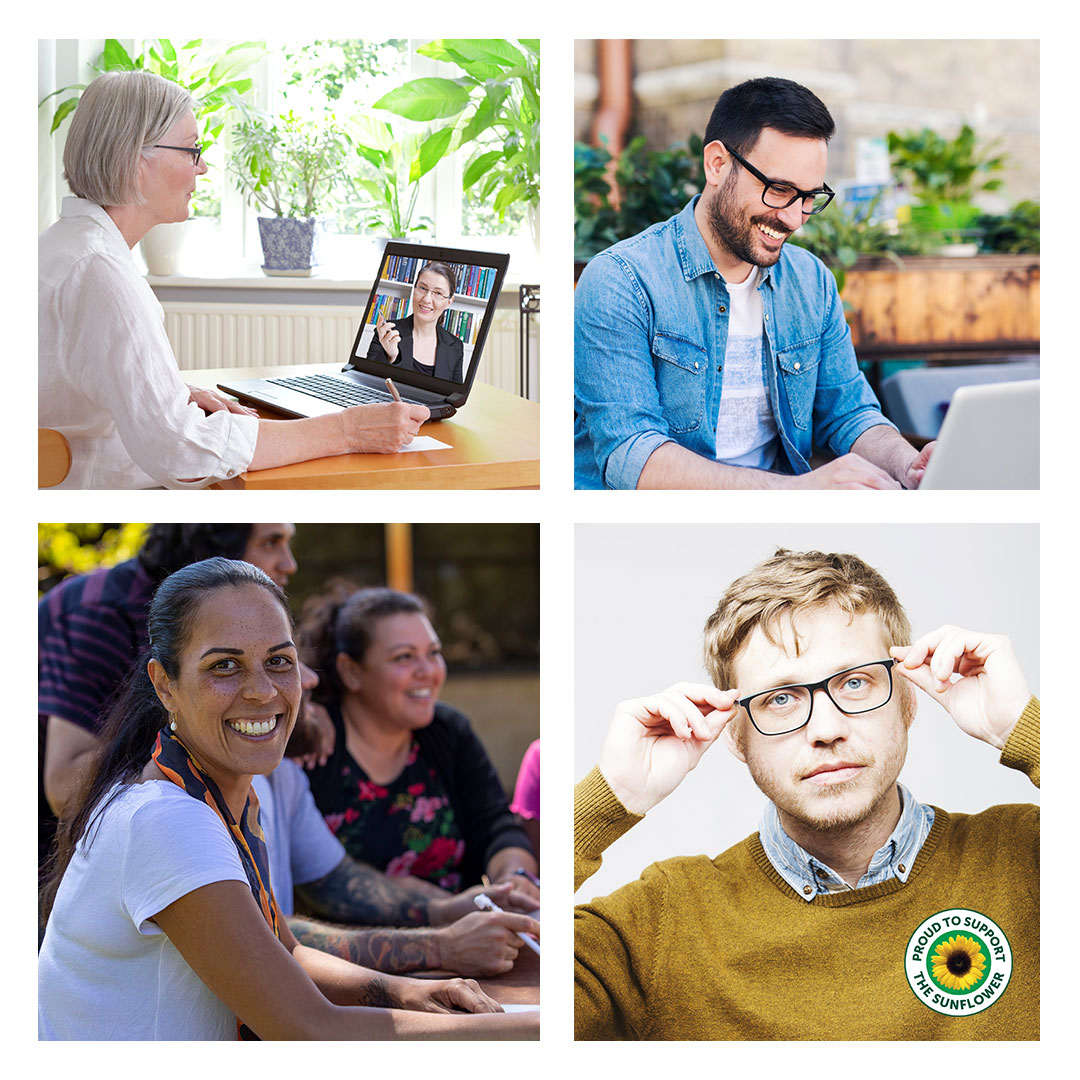
Using AI to Help Teachers Support Neurodivergent Students
A recent study by Dr Michelle Ronksley-Pavia, Mr Steven Ronksley-Pavia and Prof. Chris Bigum explores how generative AI (GenAI) can be used to design personalised learning experiences for twice-exceptional and multi-exceptional neurodivergent students.
In simple terms, twice-exceptional and multi-exceptional students are people who are both gifted and have one or more disabilities (such as ADHD, autism, dyslexia, or other cognitive or physical disability). They have strong abilities or potential in some areas but also have challenges in others. Their learning needs are more complex because several conditions interact at the same time.
These students have unique strengths and unique challenges. They need learning environments that recognise what they can do really well, while also giving the right support where they may face challenges.
In small-scale experiments, the researchers used GenAI to “rehearse” different pedagogical strategies based on synthetic (but realistic) multi-exceptional student profiles, enabling them to reflect on and potentially adapt teaching practices in a more tailored way.
Key findings include:
- GenAI-supported rehearsal gives educators a relatively safe, low-risk way to experiment with differentiated strategies before applying them with real students.
- The process helps in visualising and anticipating diverse classroom needs, particularly for students whose profiles may combine high ability or potential with other challenges (“twice-exceptional,” e.g., gifted + disability).
- Ethical and pedagogical implications are raised: how to ensure AI-designed scenarios do not reinforce stereotypes, bias, or narrow assumptions about neurodivergent students.
- The researchers argue for a human-centred approach: the goal is not to replace teacher judgement but to augment it, using GenAI to better inform inclusive and responsive instruction.
Why this matters for Disability Action Week (“Communicate. Connect. Create.”):
Communicate: This research highlights new ways for educators to communicate with themselves (through rehearsal) and with diverse student needs. By simulating real-world neurodivergent profiles, teachers can better understand and anticipate student experiences, strengthening communication, support, and expectations.
Connect: Using AI to co-design or rehearse learning experiences fosters a deeper connection between teachers and the lived realities of neurodivergent students. It creates a bridge for empathy, insight, and shared understanding.
Create: The study embodies innovation: creating tailored, inclusive pedagogies through GenAI platforms can develop teacher capacity and capabilities to reimagine how they teach and support neurodivergent students. It aligns with inclusive futures by showing how technology can be harnessed to design more equitable education.
For Griffith University, where inclusion of students and HDR scholars with disability (including neurodivergent students) is a key priority, this research offers practical, future-forward strategies:
- It suggests a model for professional learning: teachers could use GenAI platforms in their own development, rehearsing inclusive practices in low-risk environments.
- It supports Griffith’s goals of universal design for learning by reinforcing teacher adaptability to neurodiverse needs.
- It helps foreground the voices and needs of twice-/multi-exceptional students, often underrepresented in standard pedagogical planning, reinforcing institutional commitment to meaningful inclusion.
Read more: https://journals.sagepub.com/doi/full/10.1177/1932202X251346349
Championing Neurodivergent Researchers Across Higher Degrees
Researchers Dr Chris Edwards and A/Prof Kate Simpson recently contributed to a systematic review examining the experiences of neurodivergent higher degree research students.
Their work highlights that many neurodivergent researchers bring valuable strengths to their fields, such as creativity, deep focus, innovative thinking and unique problem-solving approaches. However, the review also shows that universities are often not structured with these strengths or needs in mind. Neurodivergent research students frequently encounter unclear expectations, sensory overload in shared offices and labs, and administrative processes that assume everyone works and communicates in the same way.
They emphasise that inclusion must extend beyond offering individual accommodations. Instead, universities need to create accessible systems and environments that recognise, respect and value neurodiversity. This would not only better support neurodivergent researchers but also help strengthen research culture more broadly. Their findings reinforce the spirit of Disability Action Week: when institutions genuinely embrace different ways of thinking, everyone benefits.
Leveraging Students’ Voices and Designing for Diversity
Considering how research can drive efforts for inclusion, engaging with the experiences and perspectives of students is crucial. Researchers A/Prof Stuart Woodcock and Elizabeth Hitches have explored student perspectives on university support services and unveiled important findings in relation to students’ stress during their higher education journey.
The researchers found that students with accessibility requirements and/or disability (ARD) may have higher levels of academic stress than their peers, even when they were receiving academic accommodations (Hitches et al., 2023). This stress can have negative impacts not just for learning, but for students’ physical and mental health. What this illustrates is that stress may be an important equity consideration, and reducing unnecessary stressors may be an important aspect of designing for diversity. Proactively reducing barriers to access, engagement, and performance for students, such as through an Universal Design for Learning approach to courses, may assist with meeting students’ diverse needs from the outset.
Completing this, students offered suggestions for strengthening and enhancing available student support, considerate of the high demand support services are under (Hitches et al., 2025). Overall, students recommend accessible, personalised and student-centred support, which facilitated their own sense of agency and empowerment. Students also highlighted the importance of the affective experience when accessing accommodations. In students’ accounts, it was just as important as the tangible accommodations received.
One important conclusion from these studies is that by leveraging students’ voices, the higher education sector can gain deeper insight into ways to support more inclusive experiences for students, reducing unnecessary stressors and empowering students to reach their full potential.
Supporting Our Growing Neurodivergent Student Community
Twelve percent of Griffith University students identify with a disability. Of these, more than 40% said that they have a neurological condition, which encompasses autism, ADHD and other neurodivergences. The Griffith University Student Disability and Accessibility Team are looking for new and innovative ways to respond to the needs of this growing cohort. In addition to reasonable adjustments such as extensions, quieter rooms for exams and assistive technologies, the following neuroaffirming initiatives are underway:
Advocate-ED Program
Griffith University has partnered with Empower Autism to deliver free, on-campus workshops for autistic students to build skills in self-advocacy, collaboration and self-reflection. These workshops are delivered by autistic facilitators, with future workshops in peer advocacy and leadership coming soon.
ADHD101
In 2026, students will be able to join ADHD101 – a free support group for students with ADHD developed by Curtin University. The weekly sessions focus on the many strengths of students with ADHD and shares successful strategies and support.
Hidden Disabilities Sunflower Network – making the invisible visible
Like many disabilities, neurodivergence is not always immediately obvious to others. For some people, this can make it hard to understand and believe that someone with a “non-visible” condition genuinely needs support. Simply by wearing a Sunflower lanyard or pin, people with hidden disability can indicate that they may need extra help, understanding, or just more time.
When a business joins, they commit to training their entire workforce using the Sunflower training suite - to know what the Hidden Disabilities Sunflower is, and to have a broad understanding of hidden disabilities and be confident to support someone wearing it. Griffith has just started this process and is excited to share more information in the coming months – stay tuned.
For more information contact: Lizzy King, Senior Disability Advisor - Student Disability and Accessibility at lizzy.king@griffith.edu.au
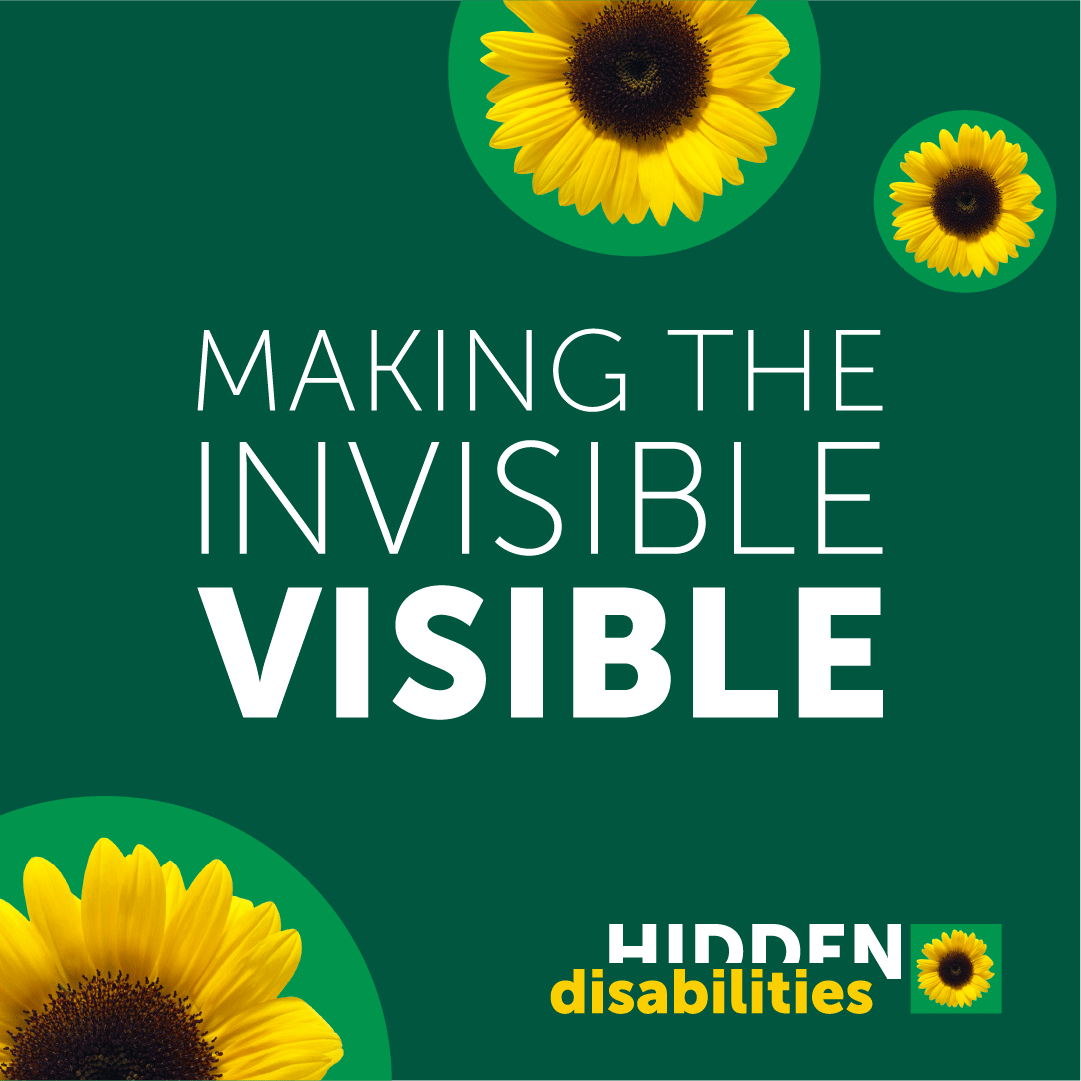
Citations
Ronksley-Pavia, M., Ronksley-Pavia, S., & Bigum, C. (2025). Experimenting With Generative AI to Create Personalized Learning Experiences for Twice-Exceptional and Multi-Exceptional Neurodivergent Students. Journal of Advanced Academics, 36(4), 601– 639. https://doi.org/10.1177/1932202X251346349
Tan, D. W., Edwards, C., Mewburn, I., Simpson, K., Webster, A. A., & Brownlow, C. (2025). Understanding the experiences of neurodivergent research students: a mixed methods systematic review. Studies in Higher Education, 1-17.
https://doi.org/10.1080/03075079.2025.2573209Hitches, E., Woodcock, S., & Ehrich, J. (2023). Shedding Light on Students with Support Needs: Comparisons of Stress, Self-Efficacy, and Disclosure. Journal of Diversity in Higher Education, 16(2), 205-214. https://doi.org/10.1037/dhe0000328
Hitches, E., Woodcock, S., O’Sullivan, K & Ehrich, J. (2025). Leveraging students' voices: understanding ways university support services can strengthen student support. The Australian Educational Researcher, 52, 583-605. https://doi.org/10.1007/s13384-024-00731-2
-
Disability Action Week 2025: Communicate. Connect. Create.
Share Disability Action Week 2025: Communicate. Connect. Create. on Facebook Share Disability Action Week 2025: Communicate. Connect. Create. on Twitter Share Disability Action Week 2025: Communicate. Connect. Create. on Linkedin Email Disability Action Week 2025: Communicate. Connect. Create. link
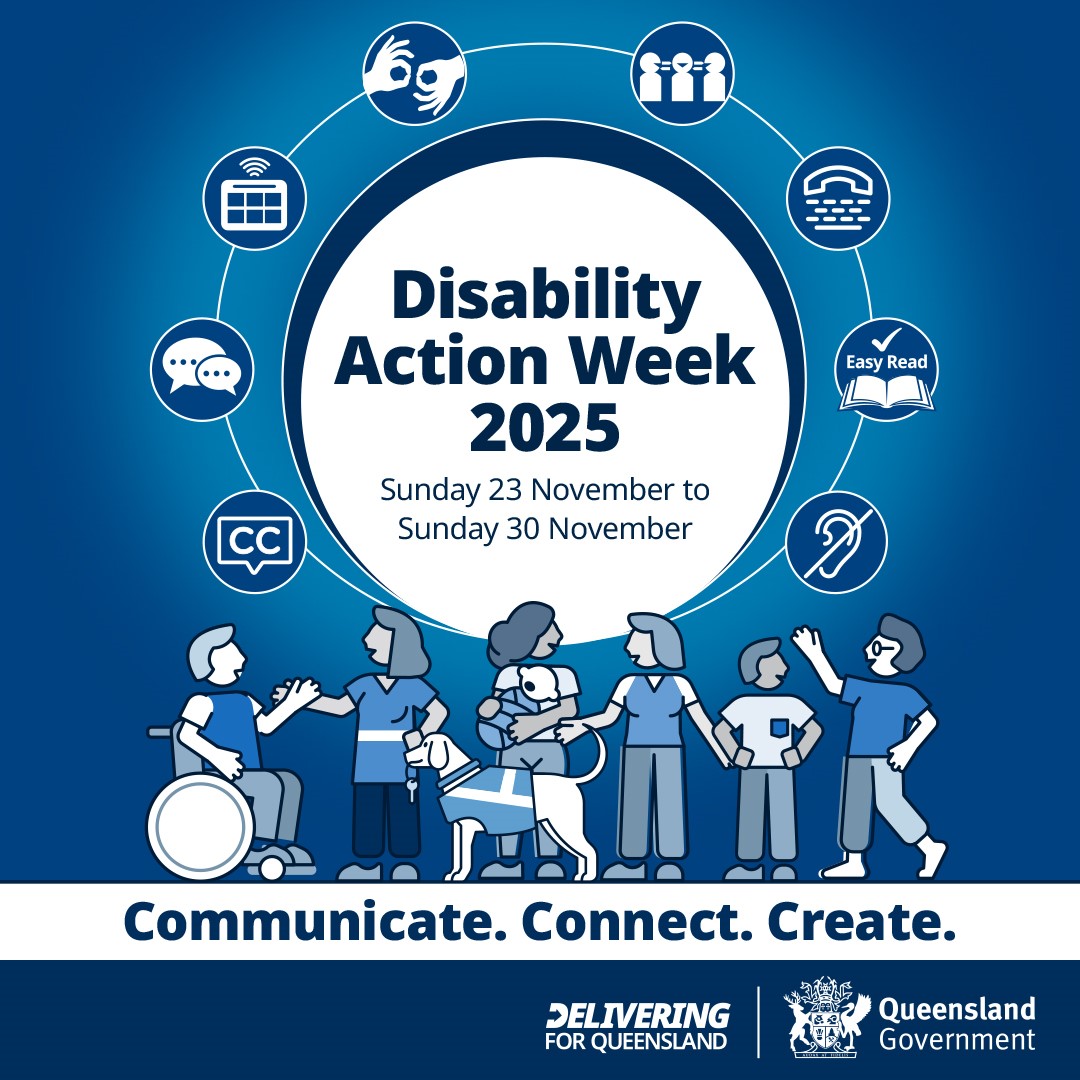
Disability Action Week is a statewide celebration of accessibility, inclusion and the simple actions we can all take to make Queensland a place where everyone can participate fully. This year’s theme — Communicate. Connect. Create.— encourages all of us to put accessible communication into practice and recognise its role in building stronger, more inclusive communities.
Small changes matter. By making information easier to understand, offering alternative formats, improving event accessibility, or taking the time to ask someone about their communication preferences, we help create environments where everyone feels welcome, respected and supported.
Shining a Spotlight on Hopkins Research
The Hopkins Centre is a leading translational research centre in disability and rehabilitation, based at Griffith University and Princess Alexandra Hospital. Our work focuses on finding practical solutions to complex challenges through interdisciplinary, collaborative and responsive research that is embedded directly in practice.
While disability and rehabilitation research rarely makes headlines in the same way that medical breakthroughs do, it is essential work. Because we work alongside people with disability, their families, clinicians, policymakers and service organisations, we see firsthand where innovation is needed — and we act on it.
We are committed to valuing the voice of people with disability in every stage of decision-making and discovery. Their insights shape our research, guide our priorities and ensure we develop solutions that genuinely improve quality of life.
We regularly produce accessible and alternative-format resources, co-design tools with end users, and embed accessibility in all engagement — from Easy Read and plain language materials to inclusive events, captioning, Auslan, and culturally appropriate communication approaches.
This year, we are highlighting three impactful projects: co-designing communication tools for people with spinal cord injury, developing accessible sleep resources for people with SCI, and strengthening mental health support pathways for PhD students through inclusive, evidence-based approaches.
We need your support to continue designing high-quality solutions, services and systems that make a real difference.
To get involved or explore current research opportunities, visit hopkinscentre.edu.au/participate-research or email hopkinscentre@griffith.edu.au.SPOTLIGHT PROJECTS FOR DISABILITY ACTION WEEK
1. Co-designing Communication Tools in the Spinal Injuries Unit
Clear and respectful communication is essential in healthcare, especially for people with complex communication needs. We are partnering with people with spinal cord injury, families, clinicians and lived-experience researchers to co-design a new communication resource for the Metro South Health Spinal Injuries Unit.
Join our online co-design workshops (Microsoft Teams):
- Patients & Families: Thursday 4 December, 12pm
- Staff: Monday 8 December, 10am
Register your interest: https://inclusivefutures.griffith.edu.au/siu-info
Contact: Dr Kelsey Chapman (Research Fellow) – dignityproject@griffith.edu.au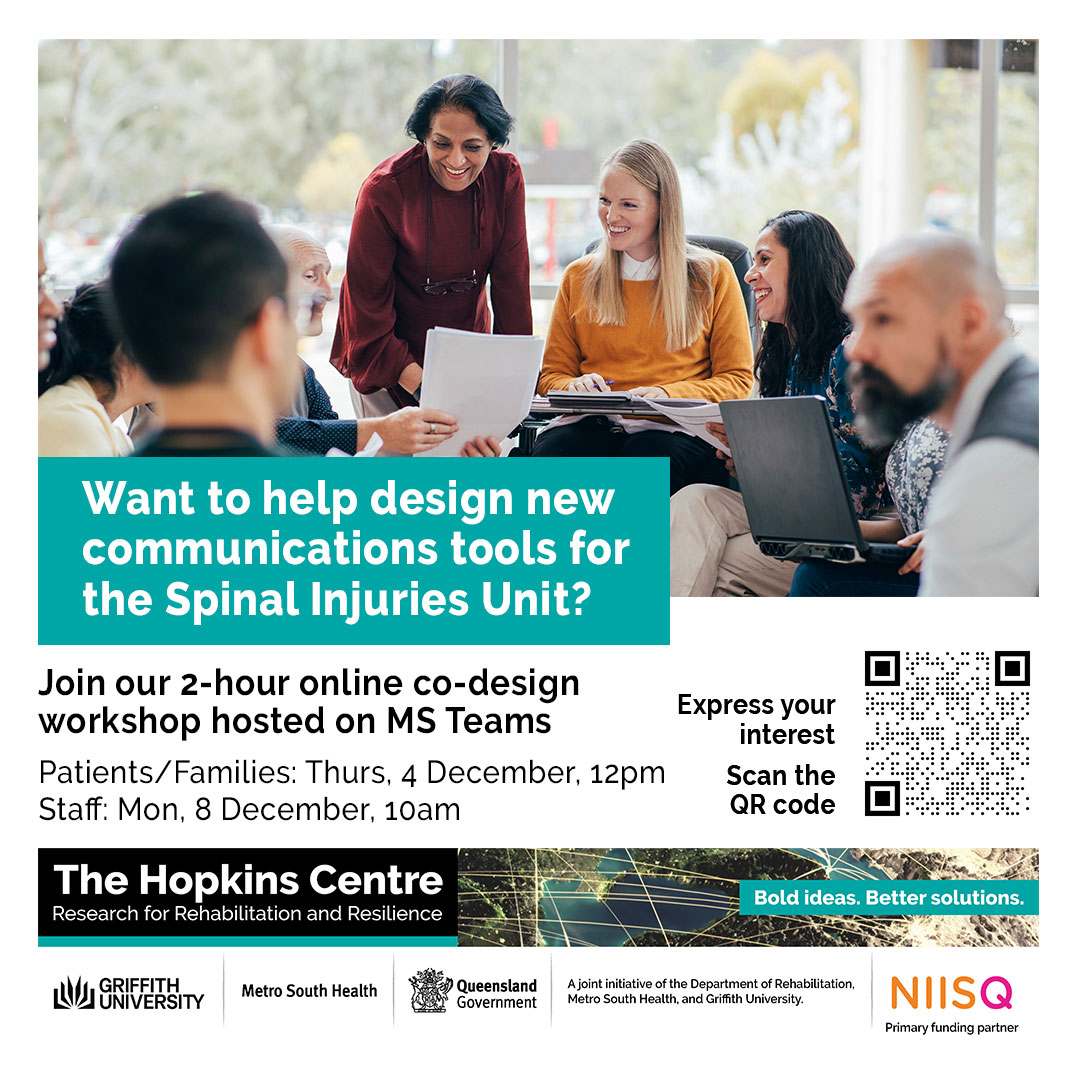
2. Sleep and Spinal Cord Injury
Poor sleep affects two in three people with spinal cord injury, yet many do not receive the support they need. Dr Emily Bray and her team at The Hopkins Centre, together with Spinal Life Australia, the Institute for Breathing and Sleep and QSCIS, have co-designed new evidence-based resources to help people understand sleep changes and explore strategies that support better rest and wellbeing.
Communicate: This project aims to raise awareness of sleep issues following SCI and to share the best ways to manage them from the perspectives of people with SCI and healthcare professionals.
Connect: Researchers, clinicians, and people with SCI collaborated through a series of co-design workshops to identify how to address SCI-specific sleep issues and their preferred approaches to managing them.
Create: The main result of this project has been the creation of co-designed sleep management resources tailored to the needs and preferences of people with SCI.
Key findings and solutions include:
Sleep issues following SCI emerge early after the injury and persist throughout life. It is crucial to raise awareness among people with SCI and clinicians about the harmful effects of poor sleep quality, the causes of sleep disturbances, and possible solutions. Participants suggested various solutions, including early and routine assessments, as well as educational resources that researchers and clinicians could explore to address these issues.
Learn more and access the resources:
https://www.hopkinscentre.edu.au/project/seed-project-sleep-disturbances-following-spinal-163Contact Dr Emily Bray:
https://www.hopkinscentre.edu.au/people-view/emily-bray-177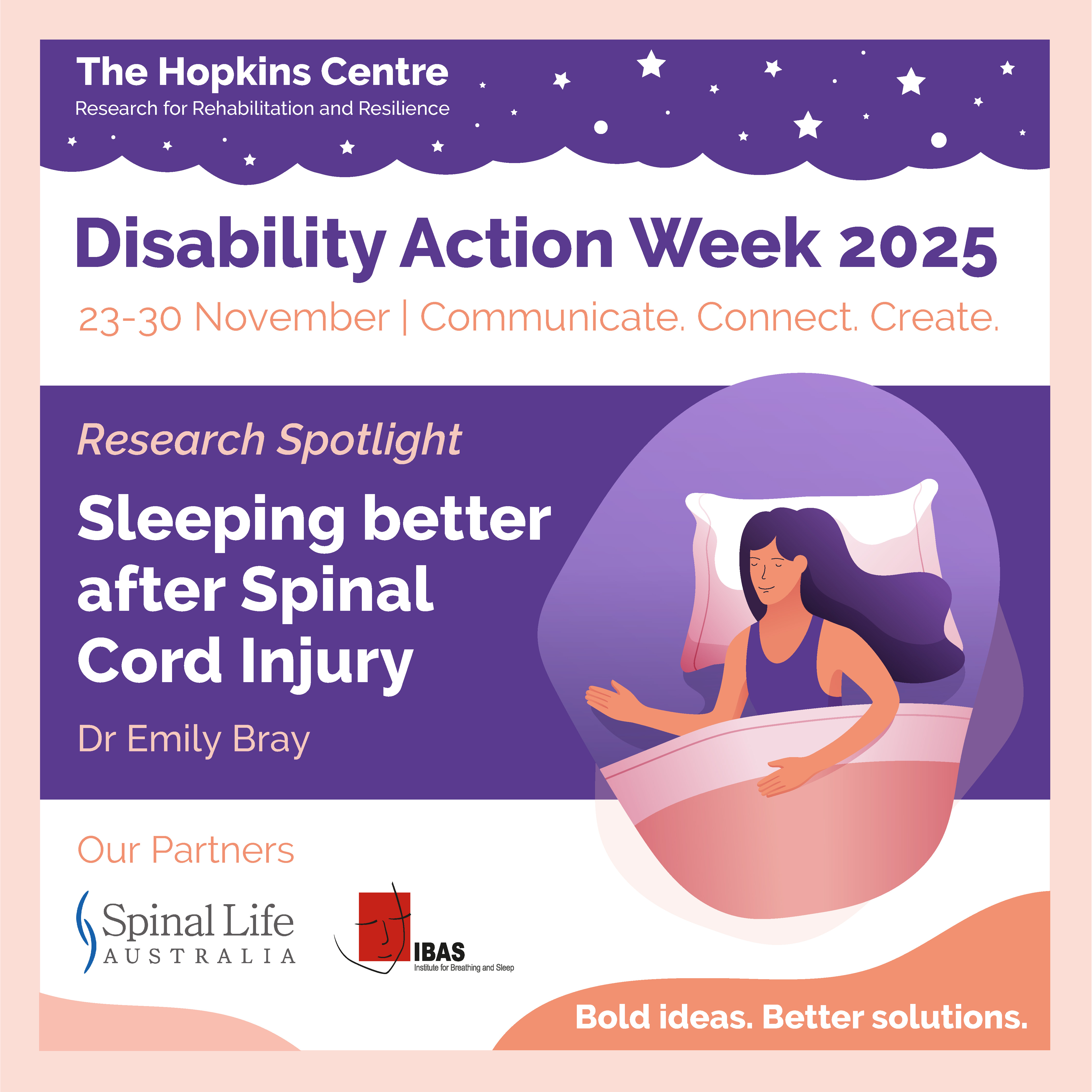
3. Creating Supportive Pathways for PhD Student Mental Health
Behind the prestige of a PhD lies a hidden mental health crisis. Many candidates face severe distress, driven by isolation, financial pressure, and perfectionism, with research suggesting up to one-third meet suicide-risk criteria. PhD researcher Ali Khan at The Hopkins Centre focuses on better mental health support and adjustments for PhD students, particularly those with psychosocial disabilities.
Communicate: The project aims to break the silence around PhD mental health, fostering open communication between students, supervisors, and institutions to remove bureaucratic barriers to support.
Connect: By bringing together all the key stakeholders, the research builds connections to combat isolation and create a collaborative, supportive academic community.
Create: The goal is to create practical, systemic solutions and more inclusive policies that support the mental well-being and academic success of all PhD students.
Key findings and solutions include:
- Key Risks: Loneliness, impostor syndrome, financial instability, and supervisor-student misalignment are major predictors of distress.
- Effective Strategies: Digital mental health tools, peer financial mentoring, and therapeutic approaches like music therapy show significant promise as accessible, low-cost interventions.
Learn more and access resources:
The Research Project: Improving Mental Health Accommodations for PhDs
Contact Ali Khan: ali.khan3@griffithuni.edu.au
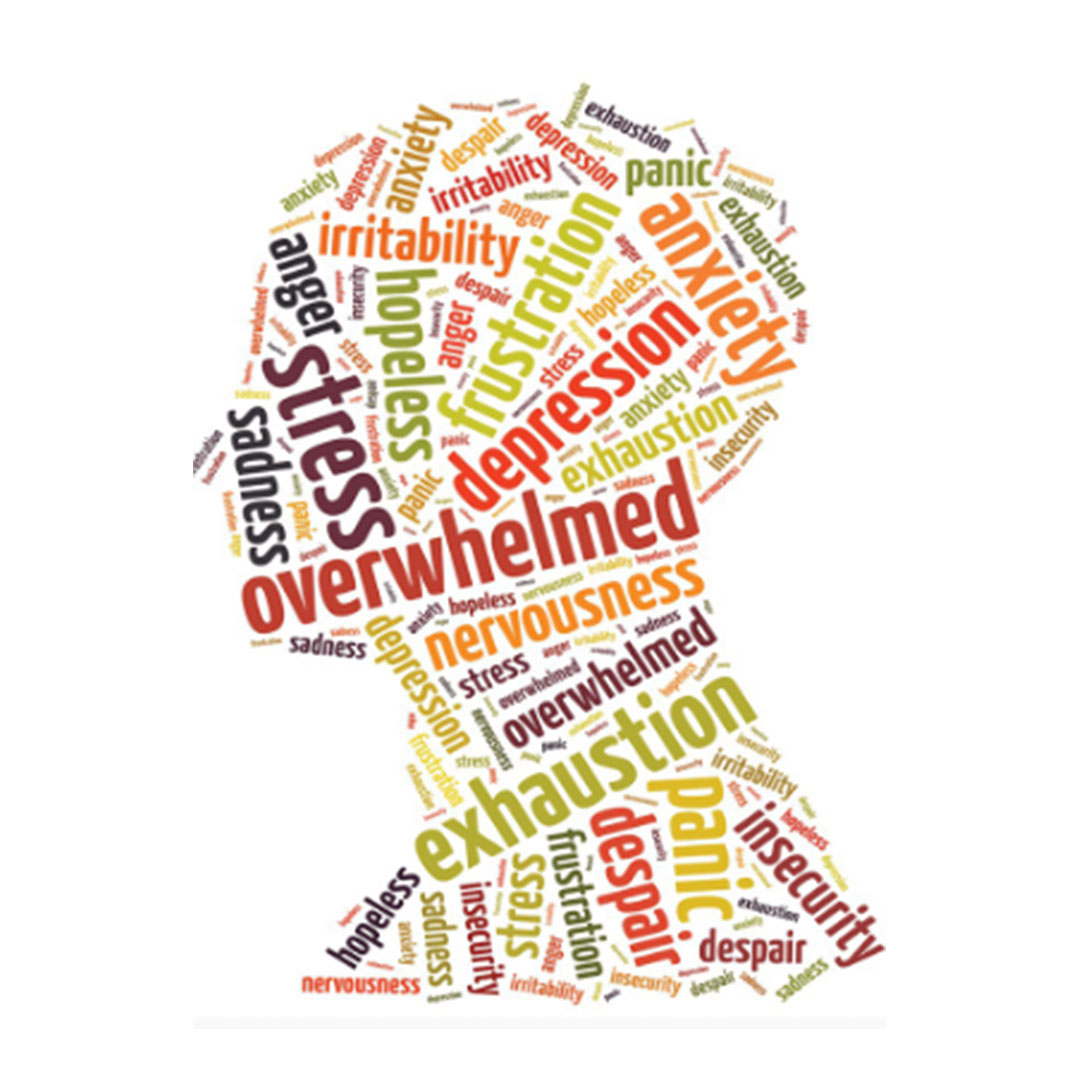
-
Disability Action Week: Sleep and Spinal Cord Injury: What You Need to Know
Share Disability Action Week: Sleep and Spinal Cord Injury: What You Need to Know on Facebook Share Disability Action Week: Sleep and Spinal Cord Injury: What You Need to Know on Twitter Share Disability Action Week: Sleep and Spinal Cord Injury: What You Need to Know on Linkedin Email Disability Action Week: Sleep and Spinal Cord Injury: What You Need to Know link

Good sleep is vital for health and wellbeing—yet research shows that two in three people living with a spinal cord injury (SCI) experience poor sleep, and most haven’t sought support.
As part of Disability Action Week, we’re highlighting important work led by Dr Emily Bray and her team at The Hopkins Centre, who have partnered with clinicians, researchers, and people with lived experience to explore this issue and bridge the information gap.
Together, they’ve co-developed new, evidence-based resources to help people with SCI better understand sleep changes and find strategies that work for them.
View the graphics below to learn more about this important research and how it supports the SCI community.
We would like to thank our partners Spinal Life Australia, Institute for Breathing and Sleep and the Queensland Spinal Cord Injuries Service (QSCIS) for their support.
Contact Dr Emily Bray for more information:
https://www.hopkinscentre.edu.au/people-view/emily-bray-177Visit our website to find out more: https://www.hopkinscentre.edu.au/project/seed-project-sleep-disturbances-following-spinal-163







-
New Research on Supporting Neurodivergent University Students
Share New Research on Supporting Neurodivergent University Students on Facebook Share New Research on Supporting Neurodivergent University Students on Twitter Share New Research on Supporting Neurodivergent University Students on Linkedin Email New Research on Supporting Neurodivergent University Students link
 Dr Kathy Gibbs, Griffith University
Dr Kathy Gibbs, Griffith UniversityDr Kathy Gibbs, Senior Lecturer and researcher from Griffith University has published important new research sharing the voices of neurodivergent students studying at an Australian university. These students talked about what helps them learn well, what gets in the way, and what universities can do better.
The study shows three big things matter most:
• feeling understood and supported
• clear, flexible and well-designed learning
• real connections with tutors and peers.Many students said that one-size-fits-all support doesn’t work. They succeed when learning is designed in inclusive ways and when support is tailored to their needs and strengths.
This research is a great reminder that simple changes — clearer instructions, flexible options, and building strong relationships — can make university more inclusive for everyone.
📘 You can read the full paper here: https://doi.org/10.1007/s13384-025-00828-2
More information:
Dr Kathy Gibbs
k.gibbs@griffith.edu.au -
Help Make National Parks Accessible
Share Help Make National Parks Accessible on Facebook Share Help Make National Parks Accessible on Twitter Share Help Make National Parks Accessible on Linkedin Email Help Make National Parks Accessible link
Your voice can help shape more inclusive and accessible parks across Australia.
Did you know that while 1 in 5 Australians live with disability, fewer than 1 in 10 visit national parks?
Public green spaces should be for everyone - But accessibility barriers often make them out of reach.
Dr Michael Norwood and his team are conducting vital research to understand these challenges and improve access to nature for all Australians.
If you have a disability or support someone who does, your experience could help make Australia's national parks and green space more accessible for everyone.
WE WANT TO HEAR FROM YOU!
Take part in our National Park and Greenspace Accessibility Survey to share your experiences and ideas for change.
Participation will involve completing an online survey which will explore if you visited a national park as someone with a disability, as a support person or significant other of someone with a disability.
Scan the QR code on the flyer or click here to take part: https://inclusivefutures.griffith.edu.au/national-parks-study
Ethics approval number: Griffith University ref no: 2025/033
MORE INFORMATION
Dr Michael Norwood
BEEHive Research Team
hopkinscentre@griffith.edu.au
-
IDPwD Panel Discussion: Fostering disability inclusive societies for advancing social progress
Share IDPwD Panel Discussion: Fostering disability inclusive societies for advancing social progress on Facebook Share IDPwD Panel Discussion: Fostering disability inclusive societies for advancing social progress on Twitter Share IDPwD Panel Discussion: Fostering disability inclusive societies for advancing social progress on Linkedin Email IDPwD Panel Discussion: Fostering disability inclusive societies for advancing social progress link
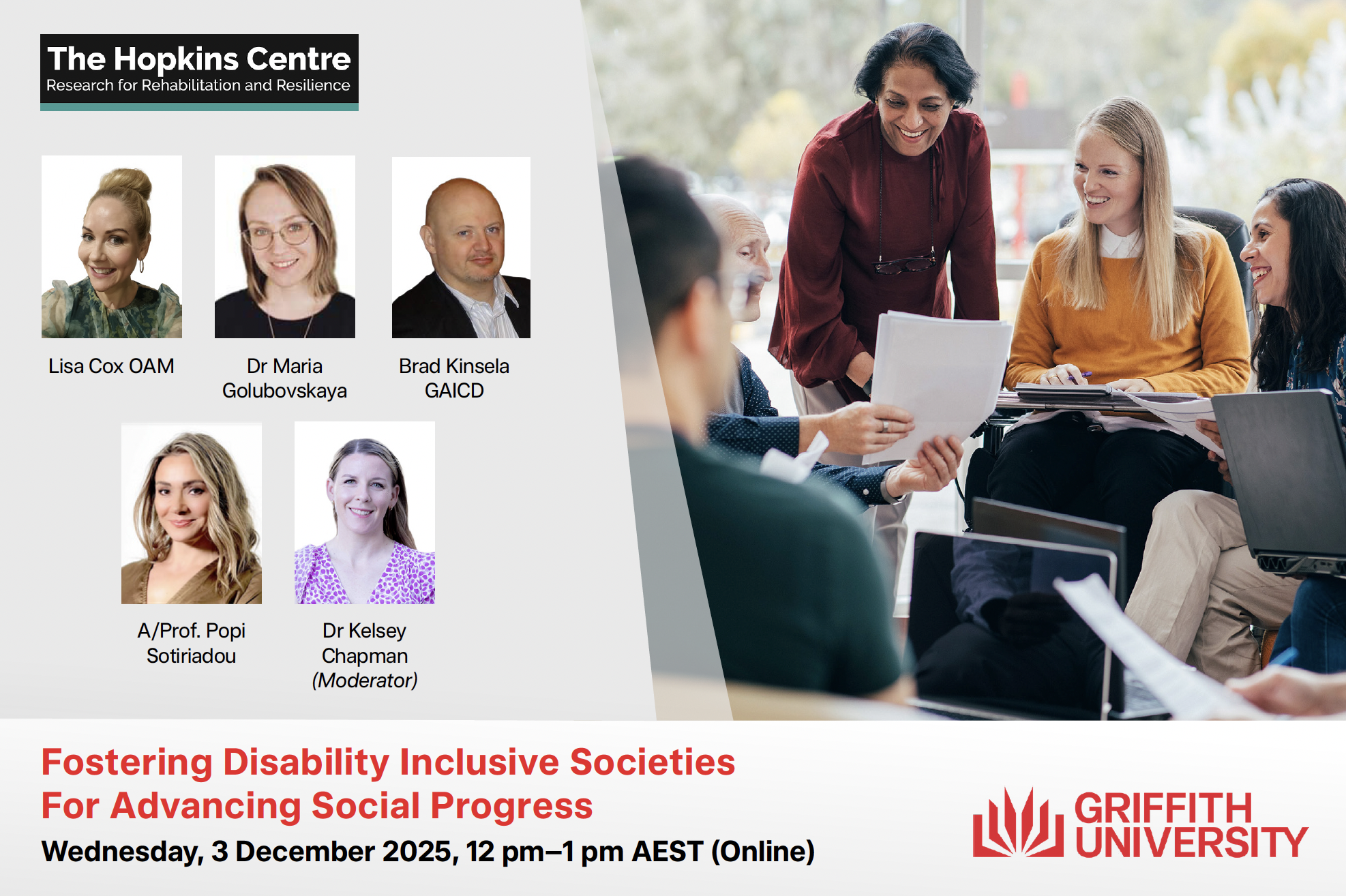
Join us to mark the United Nations International Day of Persons with Disabilities on Wednesday, 3 December 2025 (12:00–1:00pm AEST) in our online forum hosted by Griffith Business School’s Equity, Diversity and Inclusion Committee, Inclusive Futures Reimagining Disability, and The Hopkins Centre.
This year’s theme Fostering disability inclusive societies for advancing social progress, offers an important opportunity to explore how we can create more inclusive communities as we head towards the Brisbane 2032 Olympic and Paralympic Games.
In Australia, one in five people experience disability and related barriers to meaningful employment. In this discussion, our panel will consider both the opportunities and challenges of fostering disability inclusion in Southeast Queensland—particularly in the areas of education, employment, volunteering, and business. We’ll also explore how mega-sporting events like Brisbane 2032 can be leveraged as tools for long-term social and economic progress, rather than producing only short-term, event-based opportunities.
You will hear from:
Lisa Cox OAM is an author, university researcher, TEDx speaker and internationally awarded thought leader. Her work is focused on epistemic disruption, leveraging the power and influence of industries like media and advertising to change social attitudes about disability while positively impacting social outcomes, like employment.
Dr. Maria Golubovskaya, Lecturer, Griffith Business School – researching youth and disability employment, hospitality work, and service worker wellbeing.
Brad Kinsela GAICD brings an extensive background as disability and social inclusion champion, qualified access consultant and board member/company director, Adjunct Industry Fellow at Griffith University, as well as an extensive career as a 'former' senior executive in the Government for over 26 years, including the Games Independent Infrastructure and Coordination Authority. Coming from a background of disability and human rights advocacy, lobbying, and community-based human services and practice, it is not surprising that Brad has maintained his connections, profile, and commitment to living in a society that values, services and embraces all members of communitySeparate from his public policy life, his love for family and friends and embracing the outdoor wonders of the world has seen Brad take his passion to have accessibility and inclusion as the 'norm' rather than the exception has taken him to many places, most notably Barcelona and Paris in 2025 during the Paralympic Games.
Associate Professor Popi Sotiriadou is a lecturer and researcher with the Griffith Business School and a distinguished international expert in managing high-performance sport and sports education. Her work focuses particularly on advancing women in sport, accessibility, and inclusive practices that ensure equitable participation and representation. Popi is the founder of Vision for Motion, an innovative app that promotes physical activity, wellbeing, and community connection for people with visual impairments.
The discussion will be moderated by Dr Kelsey Chapman, Research Fellow with Inclusive Futures: Reimagining Disability, whose work explores effective service delivery for people with disability, particularly in transport and health.
Accessibility will be a priority, with live captions available throughout the session. This event will also be recorded and shared post-event, along with a full transcript for those who could not attend via YouTube and our website.
👉 Register now to be part of this important conversation: https://shorturl.at/Nx5Qk
More information
Inclusive Futures: Reimagining Disability
inclusivefutures@griffith.edu.auDr Millicent Kennelly – Griffith Business School
m.kennelly@griffith.edu.au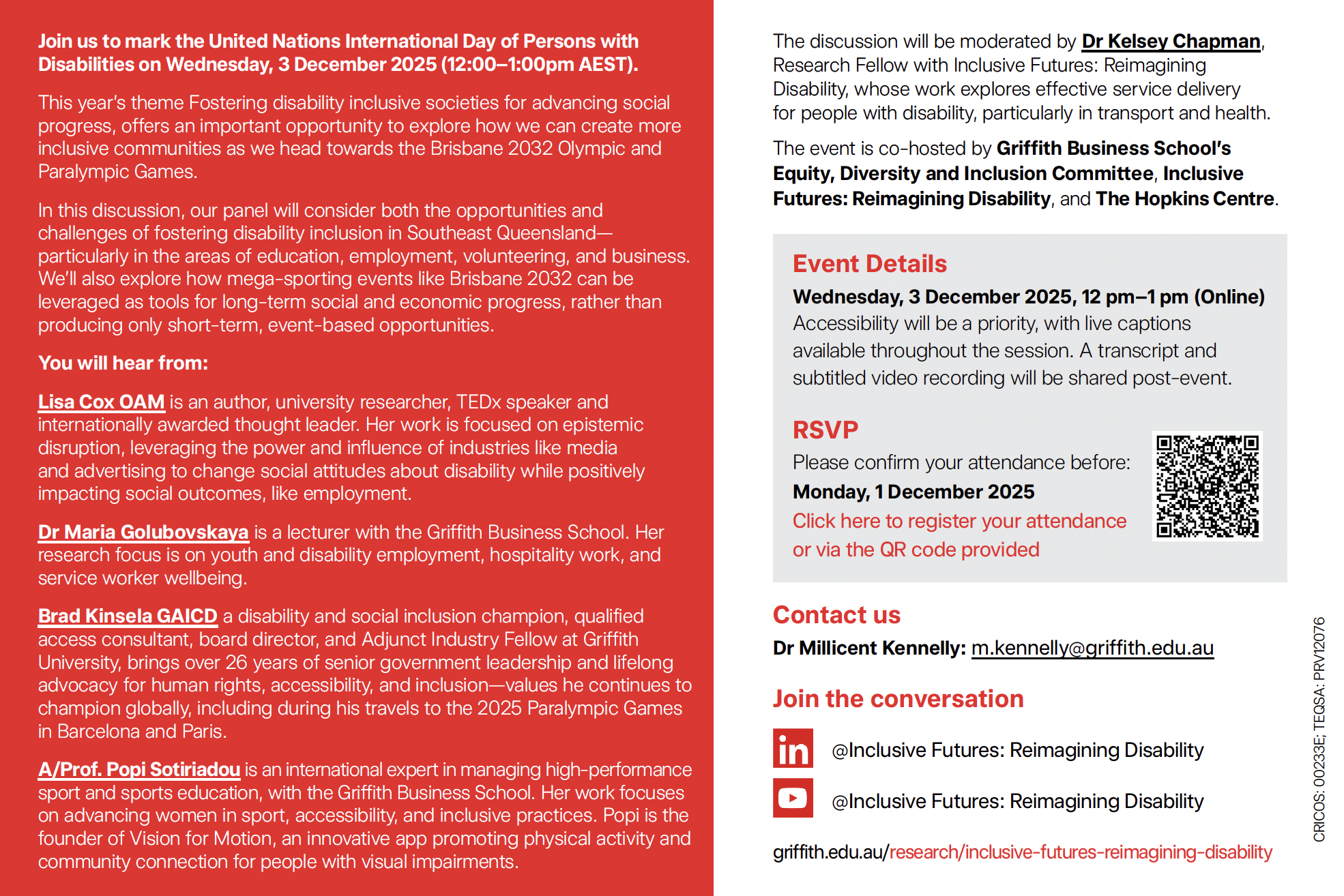
-
Inclusive Transport Futures: A National Invitation to Partner in Research and Innovation
Share Inclusive Transport Futures: A National Invitation to Partner in Research and Innovation on Facebook Share Inclusive Transport Futures: A National Invitation to Partner in Research and Innovation on Twitter Share Inclusive Transport Futures: A National Invitation to Partner in Research and Innovation on Linkedin Email Inclusive Transport Futures: A National Invitation to Partner in Research and Innovation link
Why Inclusive Transport Matters
Transport is essential for independence, health and wellbeing, and social and economic participation. Yet, it remains one of the most reported forms of disability discrimination in Australia. Despite decades of reform, 35% of people with disability still face barriers to public transport.
With the rise of digital technologies (including AI, smart glasses and autonomous vehicles); growing expectations for inclusive infrastructure (e.g. Brisbane 2032 Olympic and Paralympic Games), and the push for more sustainable urban planning in our cities and regions - now is the time to radically transform transport systems through inclusive innovation.
We invite industry, government, and community organisations to join us in shaping a national research agenda that delivers real-world impact for inclusive transport.
Our Collaborative Strength
This initiative brings together leading researchers from three universities with deep expertise in inclusive design, transport equity, digital innovation, and lived experience research.
Professor Elizabeth Kendall – Griffith University
Director of Inclusive Futures: Reimagining Disability. A national leader in disability and rehabilitation research, citizen science and consumer-led research. Elizabeth established and was the founding Director of The Hopkins Centre, a partnership between Griffith University, Queensland Health and the National Injury Insurance Scheme, Queensland, leading translational research in disability inclusion and rehabilitation.
Dr Lisa Stafford – Griffith University
Australian Research Council Future Fellow and recognised leader in planning inclusive communities. Lisa leads research across disability participation, planning and transport equity including trips not made, whole-of-journey mapping, planning strategies and co-creation with lived experience.
Professor Kim Marriott – Monash University
Expert in digital assistive technologies, Kim’s research focuses on emerging technologies, such as AI and smart glasses for accessible information access and wayfinding.
Professor Graham Currie – Monash University
Internationally recognised leader in public transport planning and policy. Graham brings deep expertise in transport equity, infrastructure reform, and strategic planning.
Professor Simon Darcy – University of Technology Sydney
Global leader in inclusive tourism and transport. Simon’s work spans universal design, accessibility innovation, and lived experience research, with a focus on systems change.
Potential Project Areas
We are seeking partners to co-design and pilot research in areas such as:
- Inclusive Journey Mapping: Understanding the full travel experience for people with disability, from planning to arrival.
- Trips Not Made: Investigating the impact of inaccessible travel on tourism, wellbeing, and social and economic participation.
- Navigation within transport hubs: Addressing signage, navigation in complex, stressful environments, and unexpected hazards.
- Handling Disruptions: Creating accessible communication systems for real-time updates and alternative routing.
- Accessible journey planning: Developing an AI-powered travel assistant for whole of journey support starting with pre-journey planning.
- Passenger Assistance Mechanisms: Designing scalable support systems for regional and remote travel.
- Consumer-Led Innovation: Engaging people with lived experience to identify priorities and test new service models.
- Workforce Development: Training transport staff in inclusive service delivery and accessibility awareness.
- Policy and Standards Engagement: Supporting implementation of disability standards and creating user-friendly guides.
Funding Pathways
We are actively preparing proposals under two major Australian Research Council grant schemes:
ARC Linkage Project
Proposed focus on supporting navigation and information access in transport hubs.[MM5] [LS6]
- Deadline: 18 March 2026
- Funding: $300,000–$400,000 over 2-3 years
- Partner Contributions: Cash and/or in-kind
- Optional: Co-fund PhDs via the National Industry PhD Program
ARC Collaborate Centre
A large-scale national consortium grant to drive long-term transformation in inclusive transport.
- Expected Deadline: Late 2026
- Funding: Up to $5 million over 5 years
- Focus: Whole-of-journey accessibility, inclusive technologies, systems reform, and workforce development
Contact Us
To express interest or explore partnership opportunities, please contact the team at:
inclusivefutures@griffith.edu.auDirector, Inclusive Futures: Reimagining Disability
Director, Monash Assistive Technology and Society (MATS) Centre
k.marriott@monash.edu

